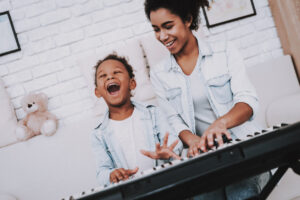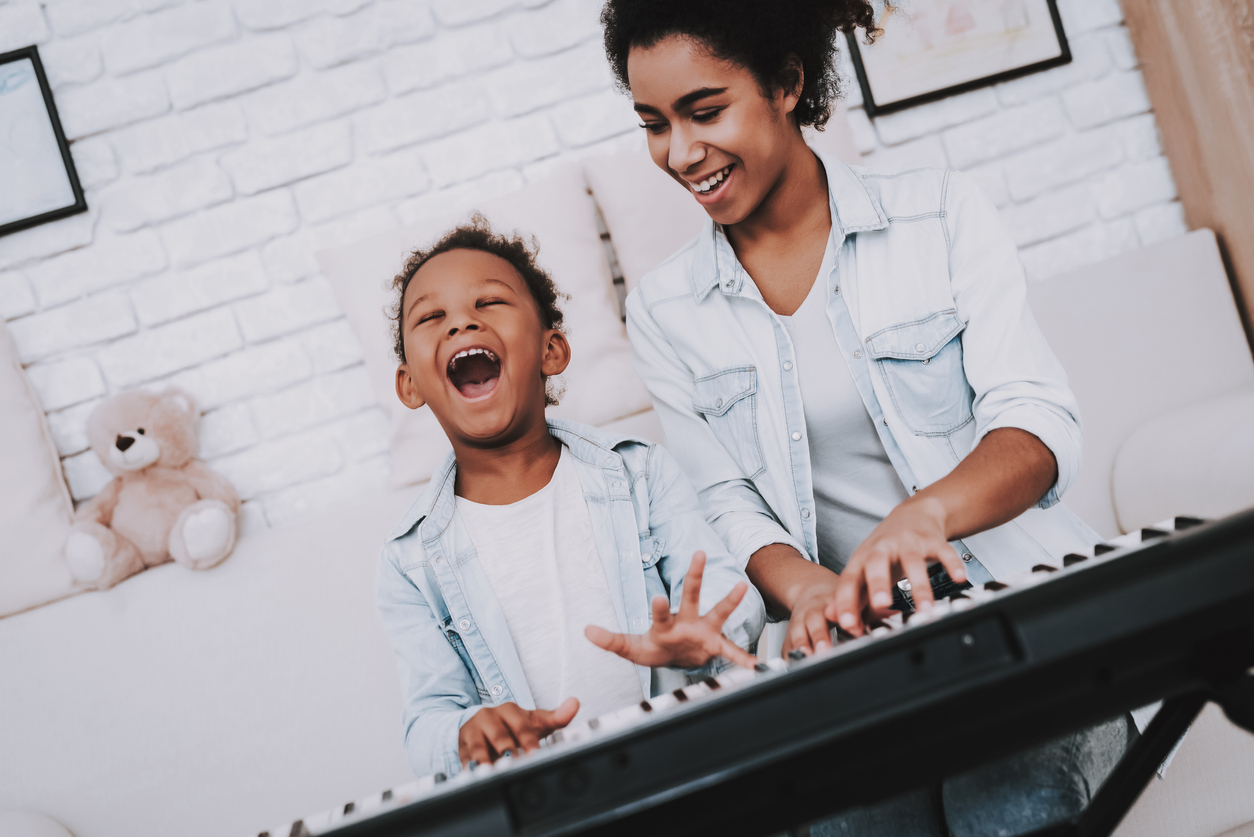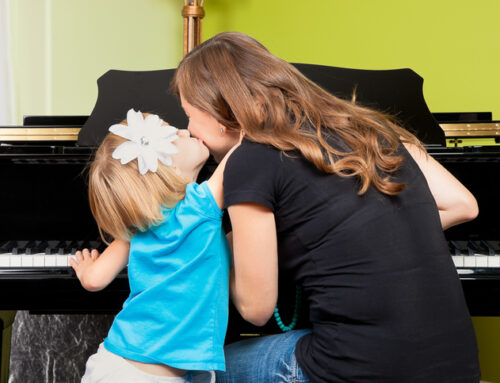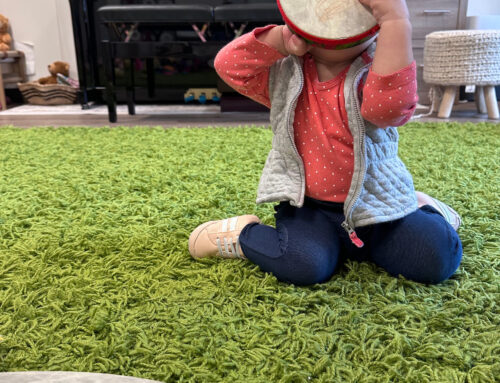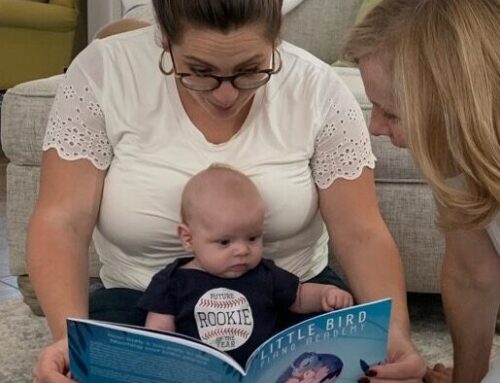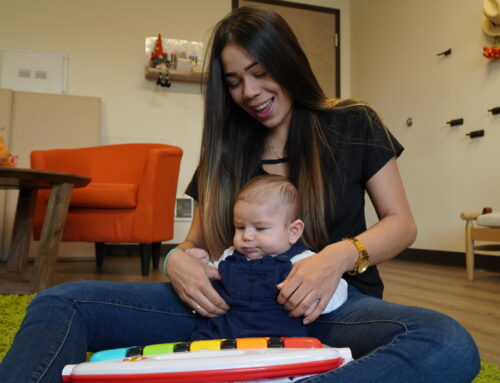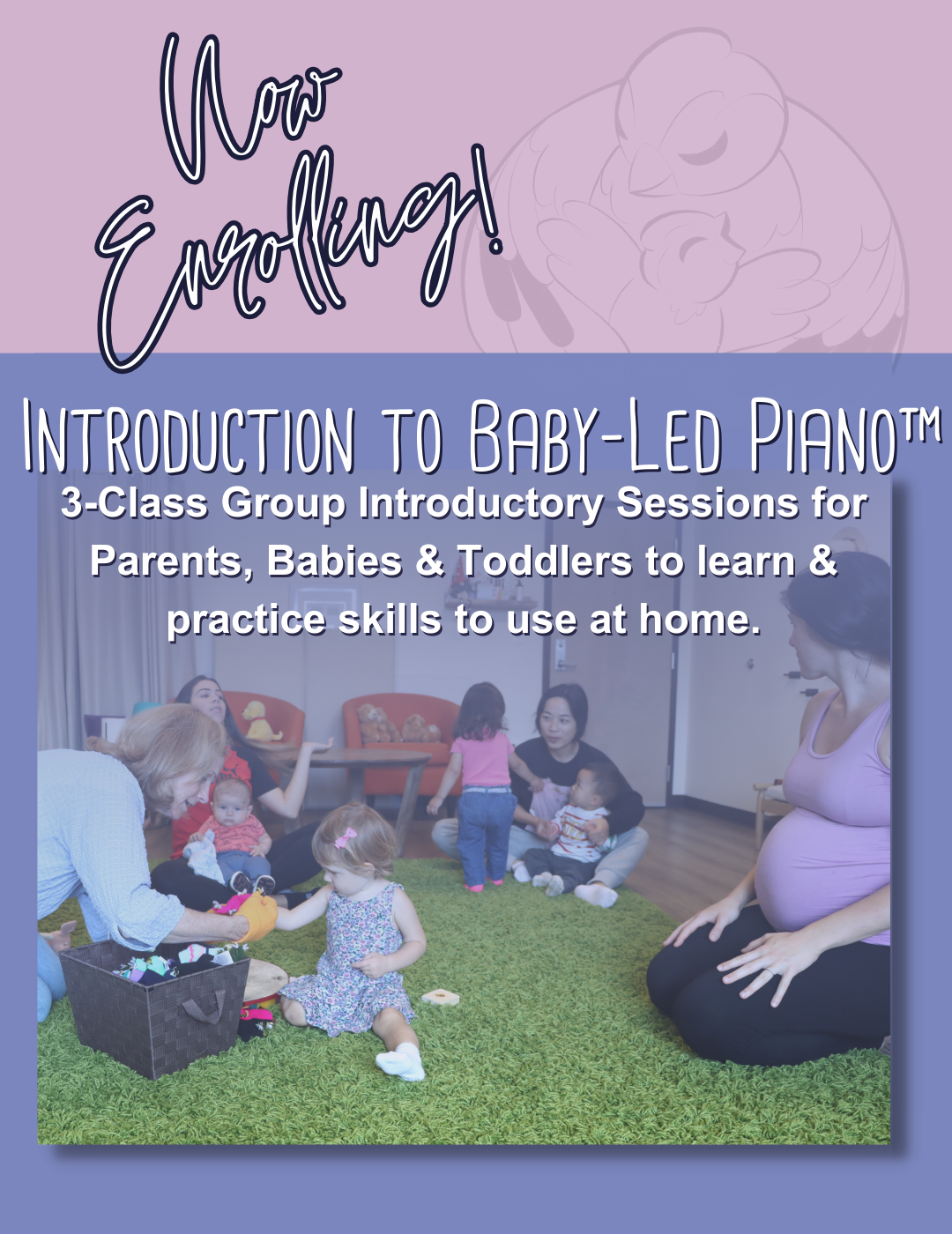There are literally thousands of people who can tell you which notes to play to replicate a tune. They can tell you the names of the lines and spaces on the staff, and how they relate to the keys on the piano. They can teach you how long to hold the notes, and even how fast or slow to play.
When it comes to teaching music to your baby, there’s so much that comes before all of those things.
- The names of the lines and spaces on the staff, and even the names of the keys on the piano are not the first things to learn in music.
- The environment in which your baby learns is more important than the information you give them.
- How to teach will be the first thing we learn.
When I was very little, my big sisters would pick me up and sit me on their laps, or on the piano bench next to them, and let me watch them play. I would take it in with amazement as their long (compared to mine) fingers would fly around the keys with such ease and play such beautiful songs! I was inspired by them. They would tell you now, that they were young, and not that good then. But to me, what they offered was enough. I wanted to be just like them.
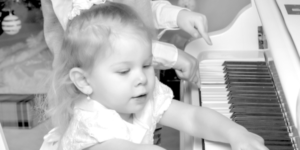
They let me try things. They showed me little tiny tunes to play. I learned to listen, I learned that it was safe to try things, I eventually learned how to play by listening to records (we had those back then) and duplicating what I heard. By age 5 I was playing songs by ear with moving chords in the left hand, and a melody in the right hand. People told me I was gifted. What no one said at that time, was that I was “gifted” by my older sisters. Their nurturing, safe non-judgmental examples provided me with the confidence to try, to learn, and to want to learn more. By this time, I still didn’t know the names of the keys, or the letters on the staff. What I was given was a great foundation in which to be curious.
What we’ve learned through research is that curiosity precedes the gaining of information and knowledge, a safe environment is essential for optimal learning, and connection is more powerful than anything.
- So how do we inspire our children to be curious?
- How do we provide a nurturing and safe environment?
- How do we build a life-long connection from day one?
Babies are naturally curious. They are wired to learn, and they’re doing it at a faster rate the day they’re born than they ever will again. That rate continually slows down over a lifetime. By age 6, many of the learning windows are formed. So validating and encouraging this natural curiosity early is the real task.
A safe environment for learning is one where mistakes are normalized, not constantly corrected. I know. This goes against most of the music teachers that have existed since at least 1600. But just imagine a world where musicians perform without anxiety, where practice is a joy. Where a growing human of any age can try new things and believe in their own ability to play something beautiful and inspiring!
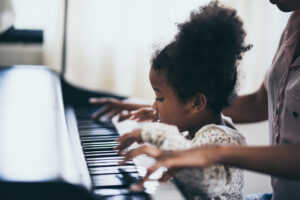
What if, in the whole process of learning new things and experimenting together, parents and their kids actually had fun making music together, rather than fighting about whether or not the kids were going to practice?”
Connection is the number one need your baby has in order to grow, to learn, to feel safe, and to mature. Learning how to build that connection to last a lifetime starts with listening to your baby the way you would listen to your very best friend when they had something important to tell you.
A lot of those things happened for me when I was very little, so that by the time I started formal piano lessons, everything my teacher taught me about music theory, expression, technique, improvisation, made sense to me and it was fun and exciting!
By the time I was 13, my older sister was encouraging me to teach some of her little students. She was sure I knew enough. I was sure I didn’t have the tools. In a way, we were both right. I could teach these kids the things I’d learned sitting on her lap just a few years earlier, but I felt like there was more. I have spent the next 40-something years figuring it out. I have continued learning all about playing, composition, improvisation, because I love it. And I have sought all the information and training I could, and practiced teaching music to very young kids. And I love it so much! Over a lifetime, I’ve been blessed to figure out how to break down the language of music so that I can teach parents and their babies, the very fundamental things that come before A B C and do re mi – using fun songs and games, that include dynamics, theory, great technique, improvisation, transposing, and playing by ear. What I’ve learned is most important is that first, we must set the stage for optimal learning.
It starts the day your baby’s born, when you hear that first song (or cry), and you are curious just how your baby is feeling. You never stop wondering, trying to understand, and choosing empathy and safe communication. When you actively listen to your baby with wonder, curiosity, and empathy, your baby will feel safe communicating with you, and will want to learn all the wonderful things you have to teach them.
Next I’ll teach you some sweet little songs that you can incorporate into everyday life with your baby, and I’ll teach you how to play them on the piano. Your baby’s job will be to just be a baby in this warm, safe environment. When your baby knows about fingers, and they grow bones in them, these will be the first formal songs they play along with you. Just imagine the fun you’ll have sitting at the piano together playing and singing the songs you’ve grown to love together since your baby was tiny!
